
Parutions de nos enseignants-chercheurs. Octobre 2023
Découvrez notre sélection.
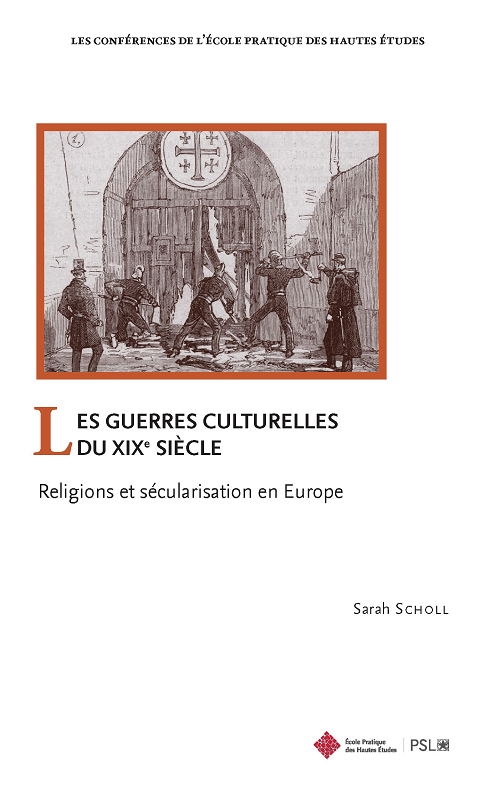
Les guerres culturelles du XIXe siècle
Religions et sécularisation en Europe
Sarah Scholl
Les conférences de l'École Pratique des Hautes Études, volume 16
Les guerres culturelles du XIXe siècle opposèrent les anticléricaux et les libéraux aux chrétiens intransigeants. Ils s’affrontèrent sur des questions majeures : l’articulation entre religion et politique, les limites de la liberté individuelle, le but de l’existence humaine. Leurs visions du monde paraissaient inconciliables. Comment ont-ils géré leurs différends ? Quelles ont été finalement les voies de la coexistence ?
En croisant les histoires italienne, française, allemande et suisse, cet ouvrage montre les mécanismes communs qui, en Europe, ont apporté une première vague sécularisatrice.
La Guerre des deux France, le Kulturkampf et le Risorgimento sont analysés comme des crises d’apprentissage du pluralisme au sein des jeunes nations démocratiques.
Ces guerres culturelles, sans véritables gagnants ni perdants, ont contribué à transformer tant les Églises, qui luttaient pour ne pas perdre leur influence, que les États qui, en se laïcisant, ont assis leur souveraineté.
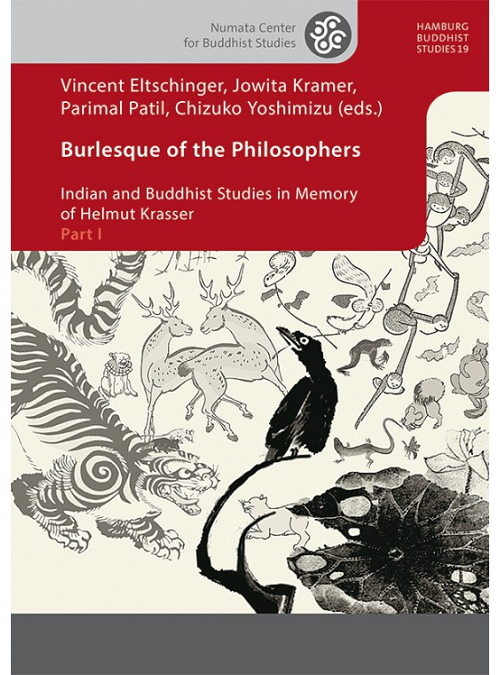
Burlesque of the Philosophers
Indian and Buddhist Studies in Memory of Helmut Krasser, Part I and Part II
Vincent Eltschinger, Jowita Kramer, Parimal Patil, Chizuko Yoshimizu (eds.)
Helmut Krasser, despite tragically passing away much too early in 2014, left his mark on more than one generation of scholars of Indian and Buddhist philosophy. An eminent specialist on the so-called “logico-epistemological tradition,” he devoted his Viennese dissertation and early work to the Buddhist philosopher Dharmottara, before broadening the scope of his research to Dignāga and Dharmakīrti, the tradition’s historical founders.
In particular, he examined their ideas on the relationship between logic and soteriology. He also considered the very nature of their texts. Should they be understood as authored philosophical works? Or rather as edited lecture notes of students? Director from 2007 to 2014 of the Institute for the Cultural and Intellectual History of Asia at the Austrian Academy of Sciences, Helmut Krasser left behind a multi-faceted body of work, including editions of ancient Sanskrit manuscripts today found in the Tibetan Autonomous Region that had never before been published.
This commemorative volume with more than thirty contributions not only reflects the multiplicity of his interests, it is also evidence of the deep impression he left on all those who met him. It is a document to the faithful friendship and highest respect still held by his friends and colleagues almost ten years after his death.
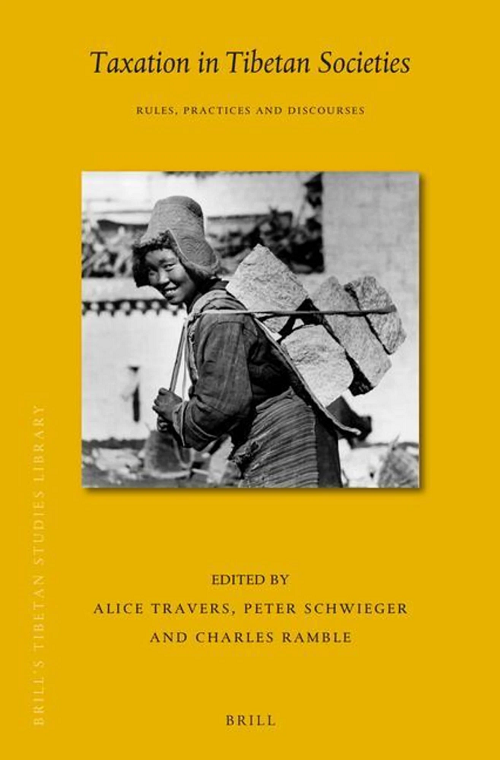
Taxation in Tibetan Societies: Rules, Practices and Discourses
Alice Travers, Peter Schwieger, Charles Ramble (ed)
Brill's Tibetan Studies Library, Volume: 53
The study of taxation is fundamental for understanding the construction of Tibetan polities, the nature of their power – often with a marked religious component – and their relationships with their subjects, as well as the consequences of taxation for social stratification.
This volume takes the analysis of taxation in Tibetan societies (both under the Ganden Phodrang and beyond it) in new directions, using hitherto unexploited Tibetan-language sources.
It pursues the dual objective of advancing our understanding of the organisation of taxation from an institutional perspective and of highlighting the ways in which taxpayers themselves experienced and represented these fiscal systems.
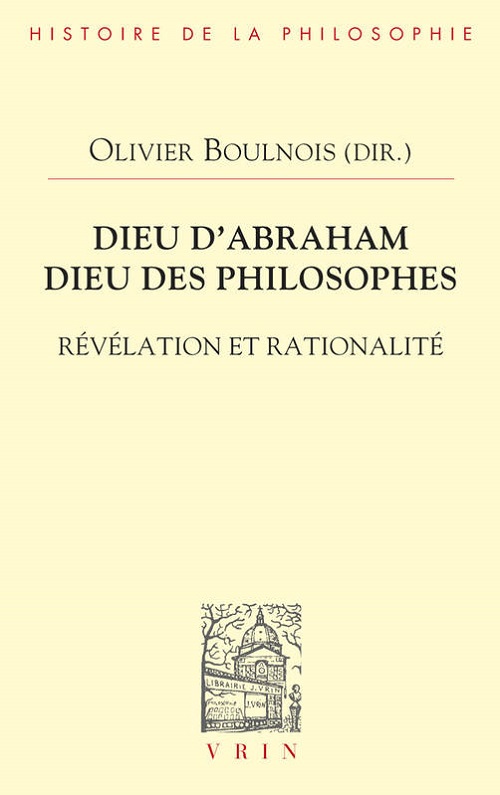
Dieu d'Abraham, Dieu des philosophes
Révélation et rationalité
Olivier Boulnois (dir)
Dans son « Mémorial », Pascal oppose le « Dieu d’Abraham, Dieu d’Isaac, Dieu de Jacob », au « Dieu des philosophes et des savants ».
Mais faut-il dresser l’un contre l’autre le Dieu créateur, pensé à partir de son ouvrage, et le « Dieu d’amour et de consolation » (Pensées, Lafuma 449) ?
Le Dieu conçu par la raison s’oppose-t-il au Dieu révélé dans la Bible et le Coran ?
Faut-il les identifier, comme saint Paul, les articuler, comme Augustin, ou les opposer, comme Luther ?
L’éclairage de spécialistes de l’Antiquité, du Moyen Âge et de l’époque moderne, ainsi que d’historiens des trois religions du Livre, permet d’apporter un éclairage comparatiste sur ces questions.
Contributions de Vincent Delecroix, Christophe Grellard, Emmanuel Cattin, Daniel De Smet, Vincent Carraud, David Lemler, Jean-Luc Solère, Brigitte Tambrun, Alain Le Boulluec, Isabelle Bochet, V. Blanchet
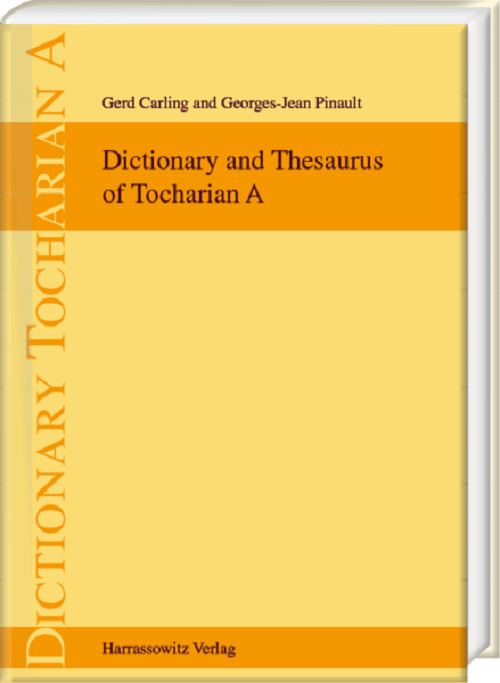
Dictionary and Thesaurus of Tocharian A
Gerd Carling, Georges-Jean Pinault
This dictionary aims to cover the whole lexicon of Tocharian A, one of the two Tocharian languages, which form a distinct branch in the Indo-European language family. These languages are documented in manuscripts found mostly in Buddhist monasteries located in the oases of the Tarim Basin, in Xinjiang, China, and dated in the second half of the 1st millennium CE. The dictionary contains a thesaurus based on all the identified texts in Tocharian A, published as well as unpublished, which are kept in various collections. It covers much more data than the dictionary published by Pavel Poucha in 1955, which was based on the Tocharian A manuscripts from the so-called Turfan collection (Berlin), edited by Emil Sieg and Wilhelm Siegling in 1921. The book includes a thorough revision of the Dictionary and Thesaurus of Tocharian A. Volume 1 (2009), which covered only the beginning of the lexicon (letters A to J). All forms of words, including variants, occurring in the texts are listed separately with reference to the occurrences and a sample of passages in transcription and translation. The meaning of a number of words has been better defined and corrected against previous glossaries. When possible, the lemmas include the corresponding items attested in Tocharian B. The references given for each lemma aim to retrieve the previous secondary literature. Many lemmas contain philological contributions pertaining to the interpretation of critical passages. Much focus has been laid on phraseology and literary parallels with other Buddhist texts from Central Asia. The sources of loanwords, from Tocharian B, Old and Middle Indo-Aryan, Iranian, Old Turkic, and Chinese, are given as much as they can be traced.
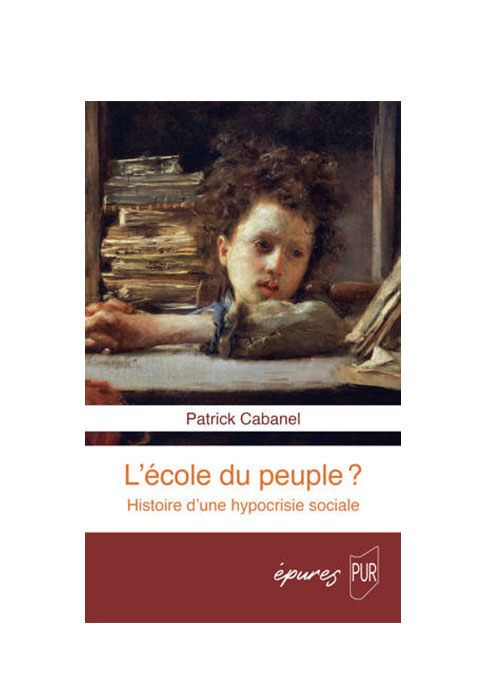
L’école du peuple ?
Histoire d’une hypocrisie sociale
Des lois Ferry aux 80 % d’une classe d’âge au niveau du baccalauréat, la République s’est bâtie sur la promesse de la démocratisation par l’école.
Mais la bourgeoisie s’est toujours réservée, à l’aide de barrières plus ou moins masquées, un accès privilégié à la réussite scolaire et sociale. C’était vrai du temps où le latin et le baccalauréat n’appartenaient qu’à quelques-uns. Puis, l’allemand ou les mathématiques ont pris la relève.
Les classes préparatoires restent à peu près aussi éloignées de l’université, dans leur recrutement et leurs débouchés, que jadis le secondaire du primaire supérieur. Et l’enseignement privé, qui n’a presque plus rien de catholique, est l’arme décisive d’une ségrégation qui ne dit pas son nom. Tout cela est inévitable : il y va de la liberté des parents. Si du moins la bourgeoisie de gauche n’ajoutait à ses stratégies scolaires le cynisme ou la naïveté qui consistent à vanter l’école laïque, mais pour d’autres enfants que les siens…
L’hypocrisie scolaire est de ces maux qui blessent au plus profond la République.